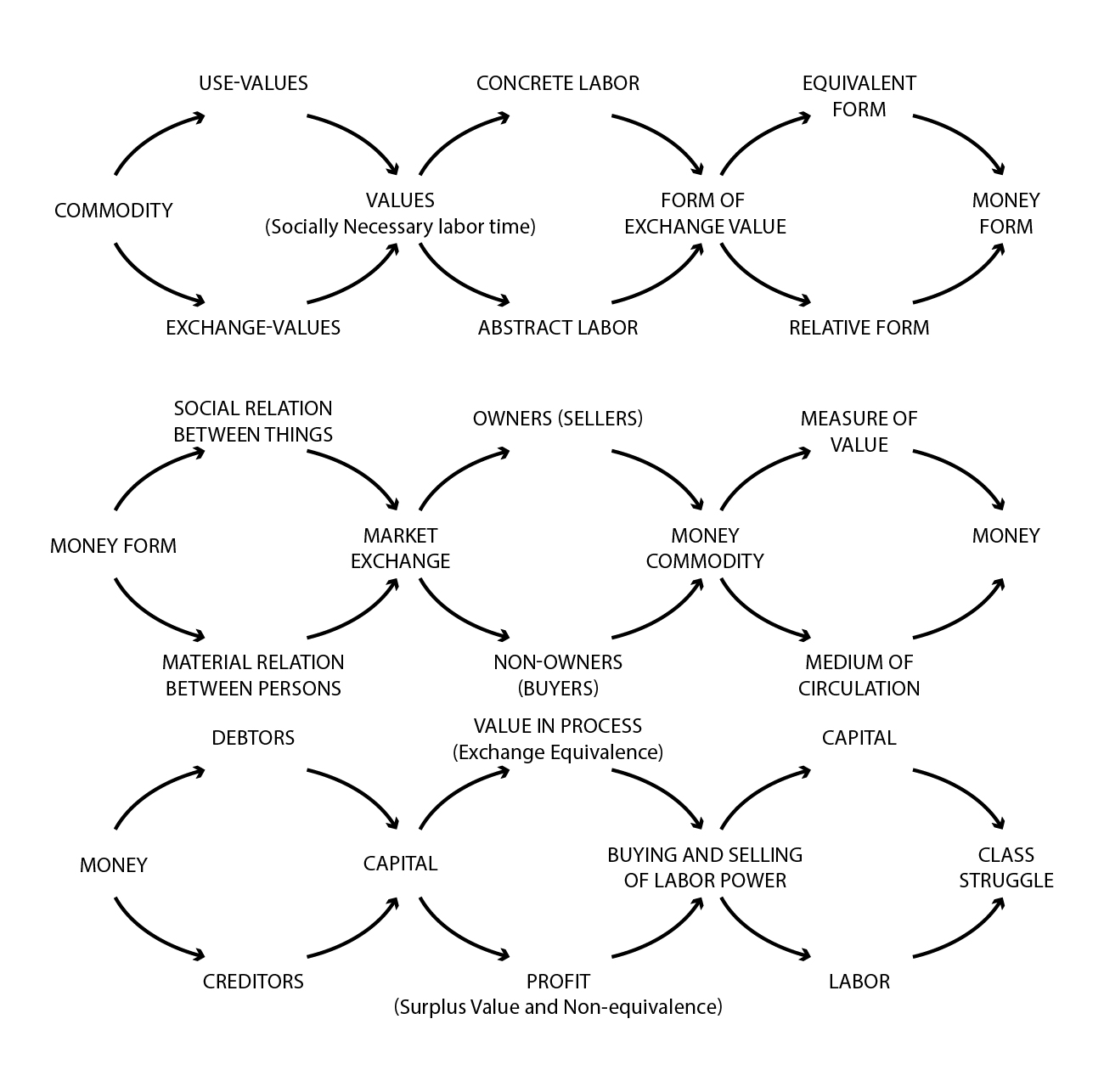The question itself might be misleading here. Considering Marx's dialectic was derived more from Hegel, the beter question would be 'how is there a contradiction inherent in concrete labor?'
So - how is that?
Here's the way I'm approaching the question. First, I'm disposing of the thesis-antithesis-synthesis and I'm replacing it with concrete-negative-abstract.
That is to say, there is a contradiction inherent in the concrete, and through the 'negative' process (the mediation process, the process that 'transforms' into the new, the sublation), we arrive at the abstract.
Where does Marx differ in his dialectic here? I know he critiqued both the Young Hegelians and the Hegelians in general for a similar problem. I'm still working out the details here...
On to the 'labor' question: concrete labor is based on the social divison of labor, into separate tasks (i.e., welding, farming, selling shirts, knitting sweaters); abstract labor is general form of labor, the aggregate sum of all labor activities.
Since I'm still uncertain on the differences between Hegelian and Marxist dialectics, I could be wrong on my assumptions following to the next issue.
Is the 'negative' in this case the labor process? Concrete labor, each specific role, is divided up for commodity production. When those commodities are put to market under capitalism (where the commodity form dominates), they meet a common exchange, the universal money-commodity. This is the basis of alienation and commodity fetishization.
Then through the labor process/valorization, labor is passed into its abstract form.
What am I getting wrong here? What exactly is the inherent contradiction? Is it that concrete labor has no value without entering capitalist relations (under an economy of generalized commodity production)? Since labor-power itself must have both a use- and exchange-value?
Or am I way off base?
